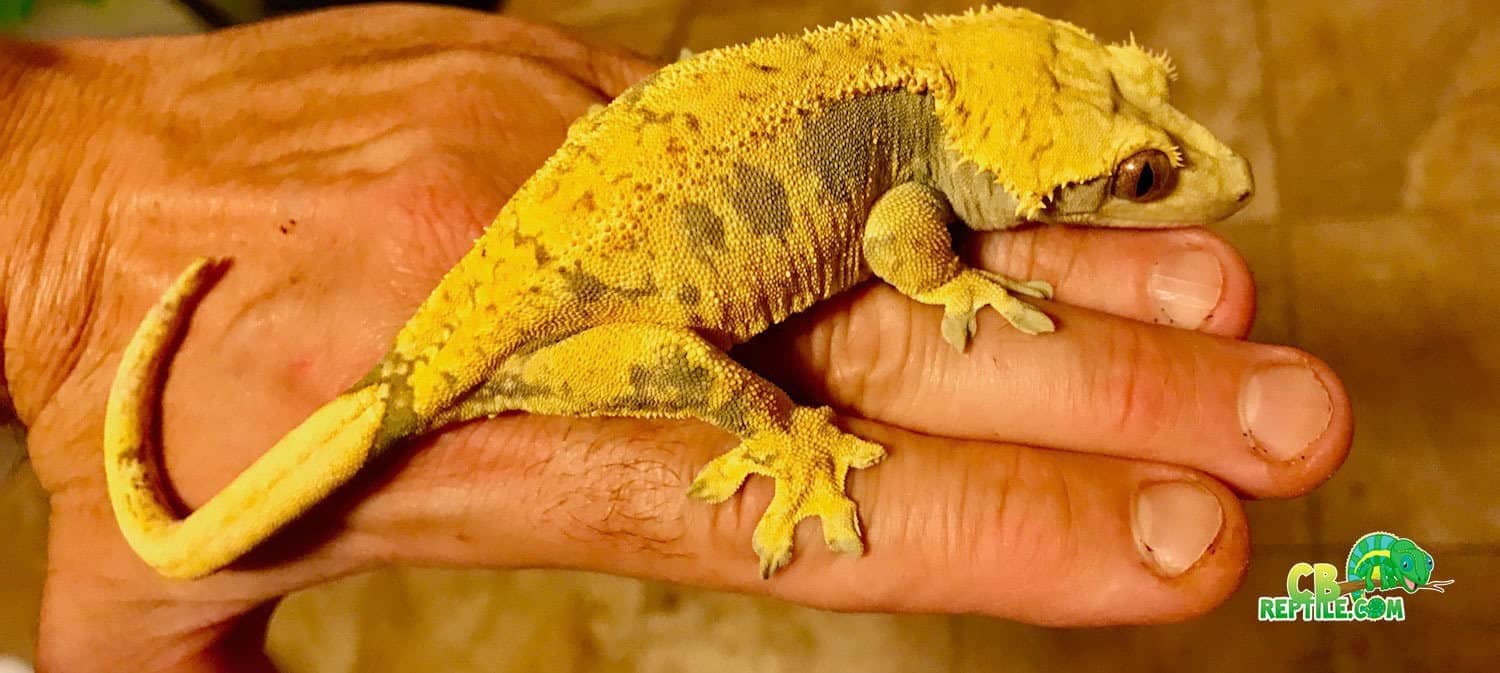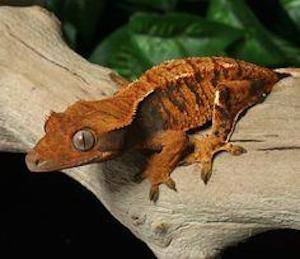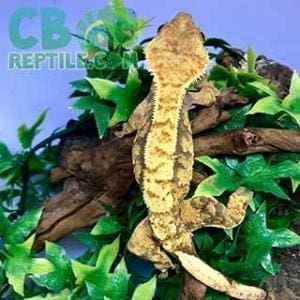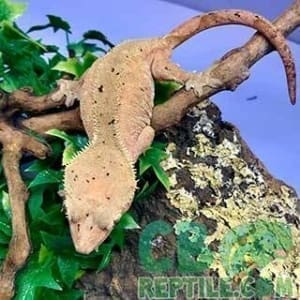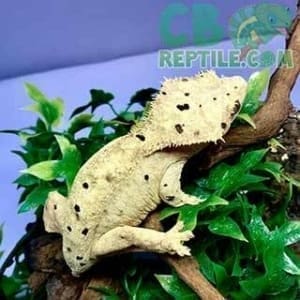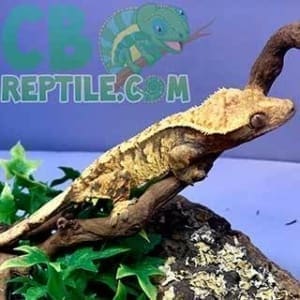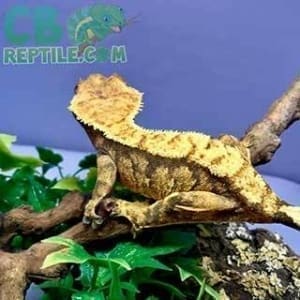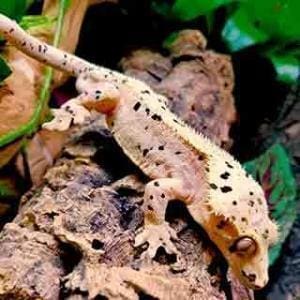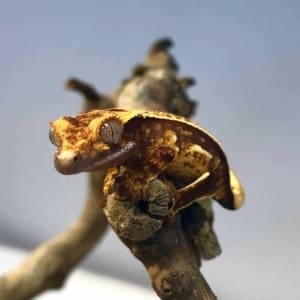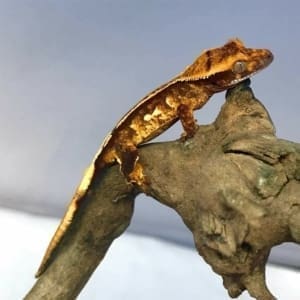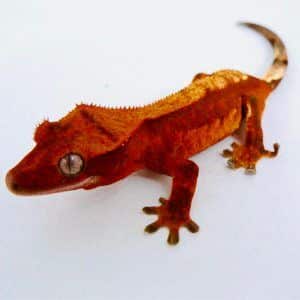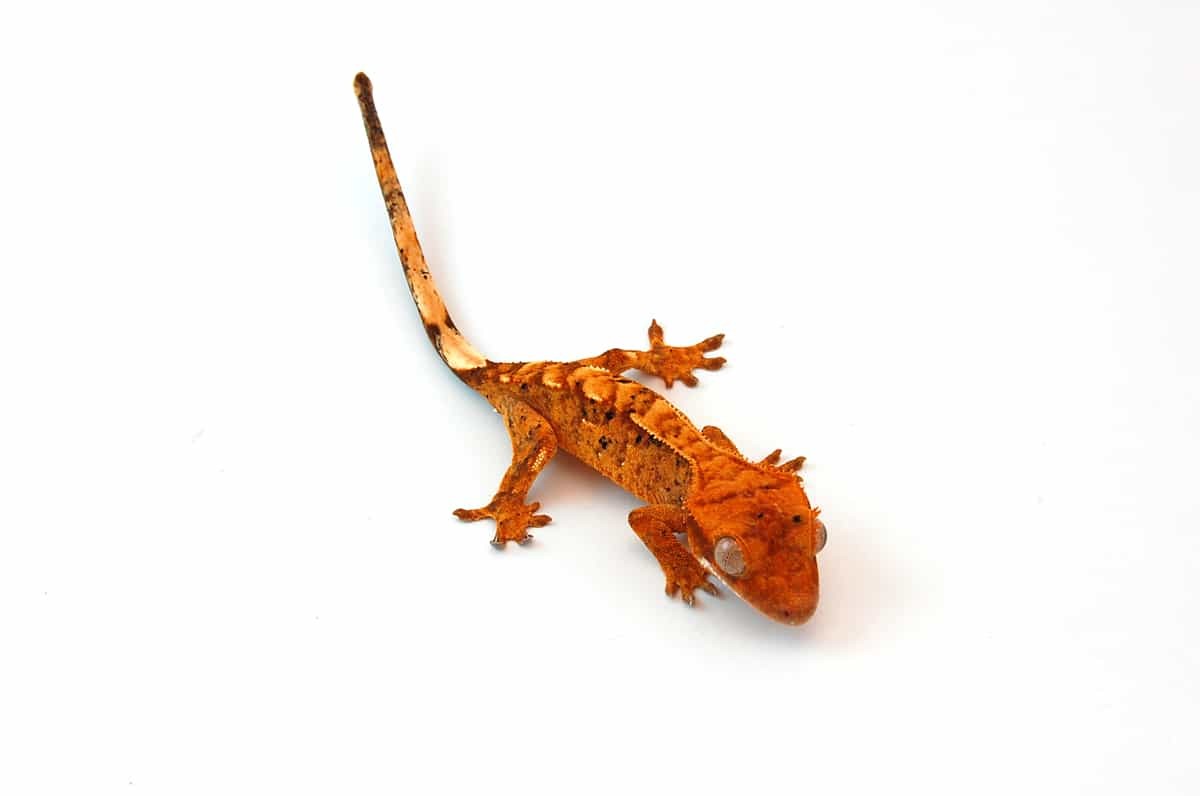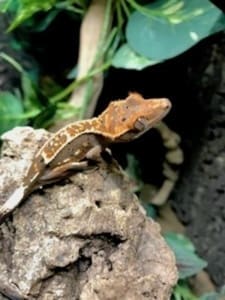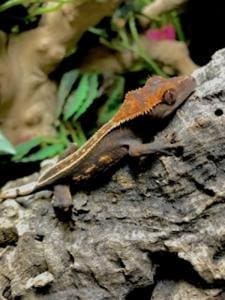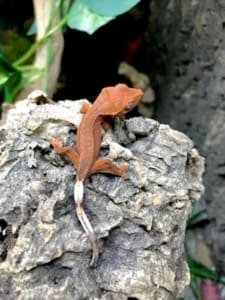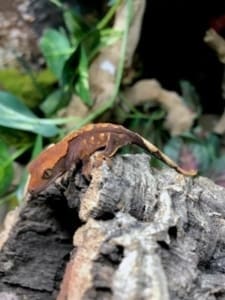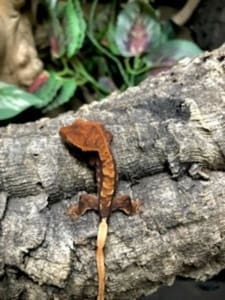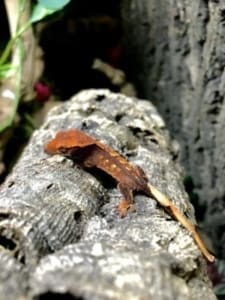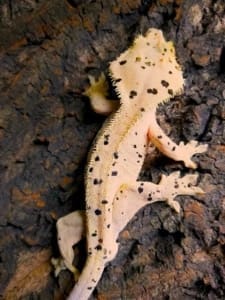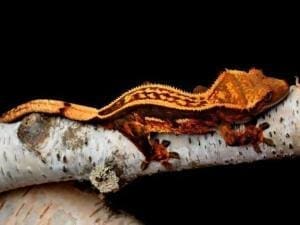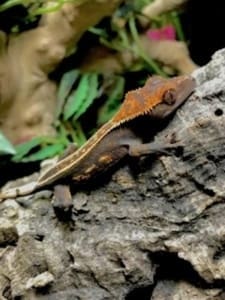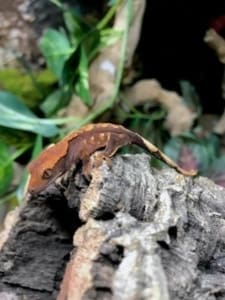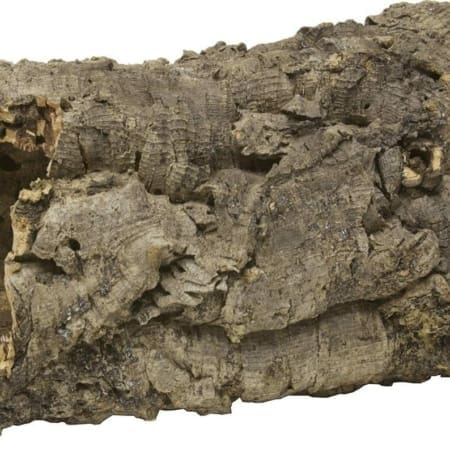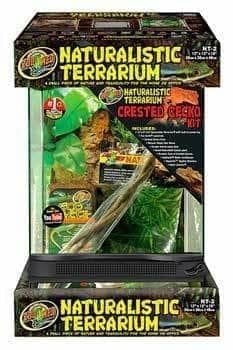Crested Gecko Habitat
Before purchasing your new crested gecko for sale, explore proper crested gecko habitat preparation and provide your new pet crested geckos for sale the best crested gecko terrarium or crested gecko possible. Baby crested geckos are best housed in large plastic terrariums or in standard (20-inch) 10-gallon reptile tanks with a screen top. An adult crested gecko or pair of female adults, should be housed in a 20-gallon tank with screen top.
Larger crested gecko enclosures are better
Larger tanks will allow for better displays and more animals, though it is not recommended to keep more than 1 male per group. In areas with moderate to high relative humidity, crested geckos will fare well in screen cages which allows better air flow. These crested gecko terrariums or tanks have the advantage of being light and easy to clean. You can keep one male and several female crested geckos together, however if you do not wish to breed do not. Keeping females together is best, if anything. Male crested geckos may fight, particularly when in the company of females, and should not be kept together for these reasons.
Crested Gecko Habitat and Crested Gecko Terrarium Cleaning:
We recommend cleaning your crested gecko habitat fully once a month. Spot cleaning may be done as often as possible. Using water or a reptile safe cleaning solution is recommended. For a substrate with our crested gecko breeder groups, we use paper towels. While paper towels may not look the best, they are certainly a sanitary option, that are easy to clean or change. Alternative types of substrate like reptile carpet work but will need to be cleaned weekly and replaced monthly to prevent odor.
Crested Geckos Habitat Maintenance:
Every day, you should allow yourself 5 minutes to clean your maintain your crested gecko habitat. On a day to day basis we quickly change the water so it is fresh in crested gecko enclosures. Also, with a mister, we will do a light spray of water round the enclosure either once or twice per day. This allows the enclosure to remain humid for the crested geckos to shed properly as they grow. Lastly, we try our best to spot clean any visible waste such or uneaten food and replace it with fresh crested gecko diet.
Crested Gecko Lighting and Temperature
Cresteds like all reptiles, are ectotherms (body temperature varies with environmental temperature), so it is important that you provide the proper temperature range (thermal gradient) for activity and feeding. A thermometer is essential for accurate temperature measurements for any crested gecko habitat or crested gecko enclosure.
Crested geckos are comfortable at temperatures in the range of 74 to 48 degrees F during the day with lows in the 70s at night. The best median temperature from our experience is 74 degrees. In most areas this temperature range will be reached during the warm months of the year without additional heat. In summer, place crested geckos in a cool room if the temperature exceeds 85 degrees. During the winter crested geckos will tolerate temps in the mid 60s just do not drop below 60 Degrees at night.
Using heat emitters for crested gecko hot spots
The easiest way to provide heat is a ceramic heat emitter in a reflector type fixture placed on the screen top over one side of the tank so that the temperature of basking areas (branches) reaches the desired range. You can also provide under terrarium heat with a pad but the vertical design of proper habitat would make it so that is less effective. You must always keep one side of the tank unheated so that crested geckos can choose a cooler area to regulate their body temperature. The use of a subtank reptile heat pad or heat tape under one side of the tank can be regulated by a thermostat.
If you have live plants in your vivarium additional light can be provided by a fluorescent bulb running the length of the tank. Crested geckos tend to rest in foliage or shelters during the day and are active at night. They do not require UVB light if fed a diet that contains Vitamin D3. Turn off lights at night.
Crested gecko care sheet
The biologist here at CB Reptile has provided an in-depth crested gecko care guide including many different care related topics. Explore our full care sheet for specific sections here:
- Crested gecko care sheet
- baby crested gecko
- crested gecko heating
- crested gecko lighting
- baby crested gecko diet
- crested gecko supplements
- crested gecko for sale
- best crested gecko humidity
- crested gecko habitat
- baby crested gecko temperature
- crested gecko size
- crested gecko lifespan
- baby crested gecko habitat maintenance
- crested gecko breeders
- crested gecko shedding
- how to pick up a crested gecko
Crested Gecko Substrates
Crested geckos spend most of their time above ground so a variety of substrates can be used. For simple maintenance purposes, reptile carpet is attractive and easily cleaned. For a more naturalistic look, a peat-moss-based soil mix that doesn’t contain perlite will work well. Coir (coconut fiber pulp now sold in reptile stores as compressed bricks) mixed 50 percent with soil is a good choice for growing live plants.
Crested geckos feel comfortable resting in foliage and like to climb on wood. Good landscape materials include cork bark sections for vertical and ground level shelters and climbing areas. Dried wood branches angled across the length of a vivarium provide resting and activity areas. Do not over clutter the tank. Leave plenty of open space. Live or artificial plants in combination with wood and bark will provide the security crested geckos need to rest in the open and add a decorative element to the display. Good plant selections include small Ficus benjamina, Dracaena spp. and Pothos.
Crested Gecko Feeding
In this author’s opinion, the complete powdered diet Pangea brand “Crested Gecko” Diet has played a key role in making these among the most popular of lizards kept as pets, because it excludes the need to feed live insects. Crested geckos thrive when fed this diet exclusively, which has been tested with thousands of geckos for more than 10 years. The diet is mixed with two parts water and offered in shallow dishes three times a week as much as these geckos will eat at a feeding. The diet is allowed to remain 24 to 36 hours before removal.
In addition to fruit, crested geckos relish insects and some hobbyists choose to offer these as either a primary diet or as supplementary diet. Crickets now sold in the pet trade are the best choice and you should select a size where length of cricket equals width of head. Crickets should be lightly coated with a vitamin/mineral supplement that contains calcium, vitamin D3 and a complement of other essential vitamins and minerals. They should be offered three times a week as a primary diet or once a week as a treat/supplement to the Crested Gecko Diet.
Crested Gecko Water and Humidity
Water should always be available for crested geckos in a shallow water dish. These geckos also require a relative humidity of at least 50 percent and preferably 70 percent. In dry areas the tanks should be lightly misted nightly or a cool air humidifier placed in the room. Inexpensive hygrometers (relative humidity gauges) for use with reptiles are now readily available in the pet trade.
Crested Gecko Tails
In nature, crested geckos will usually lose their tails and end up with a tiny pointed tail nub. “Taillessness” is a normal condition for adults crested geckos. In captivity, hobbyists like their crested geckos with tails, but this requires keeping animals individually and pampered to prevent tail loss. Even then it happens, oh well :( They are still super cute!
Crested Gecko Handling and Temperament
Newly purchased crested geckos should not be handled, but first allowed to settle in for three to four weeks to let them adjust to their new environment and to make sure they regularly feed. When you start handling your crested gecko, make handling sessions short, no more than five minutes. Baby crested geckos tend to be flighty and can be injured in the course of handling. For this reason you should wait until they are at least 3 inches SVL before handling. Crested geckos seldom bite and when they do it is of little consequence. A quick nip and let go.
- Display 9 Products per page
-

Cork Round Cork Bark
$28.95 – $47.95 Sale!Select options This product has multiple variants. The options may be chosen on the product page

